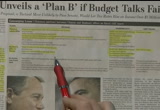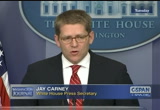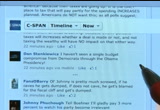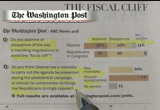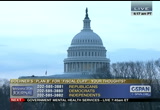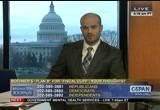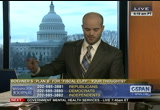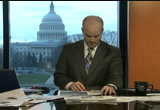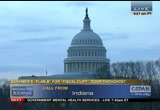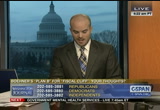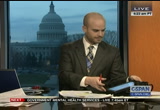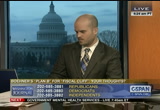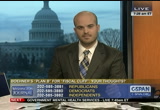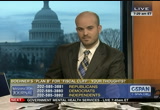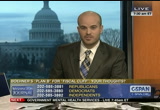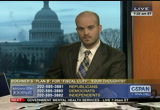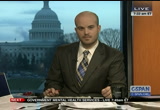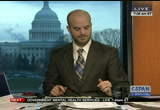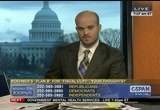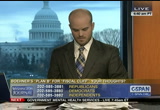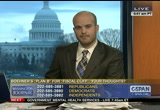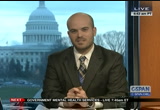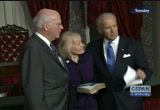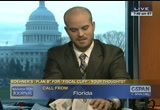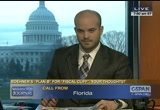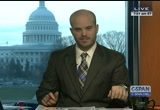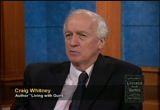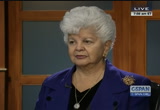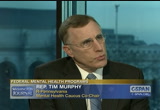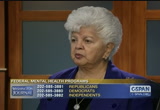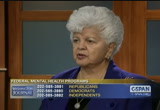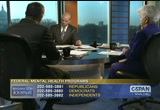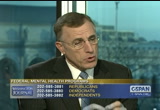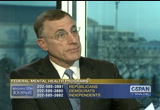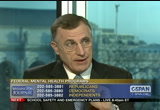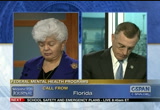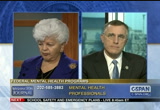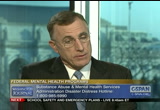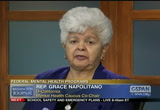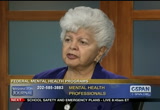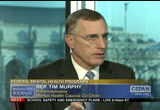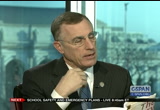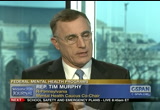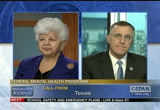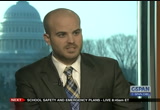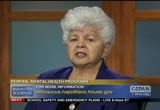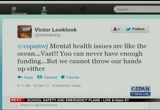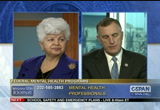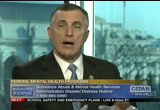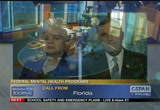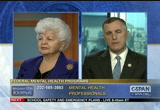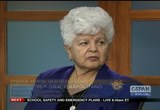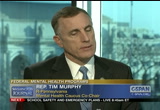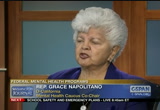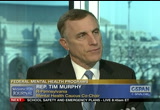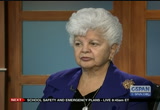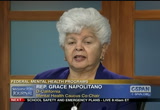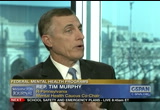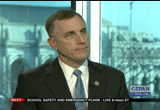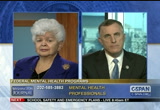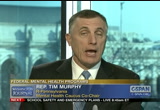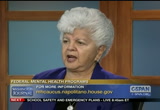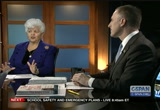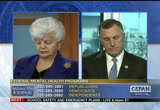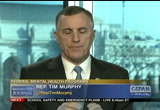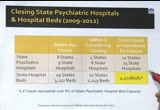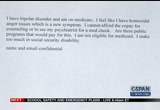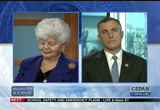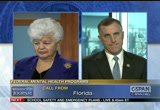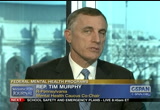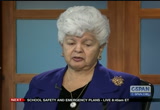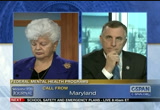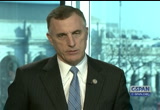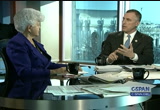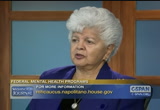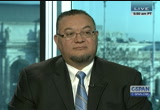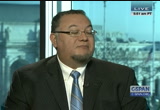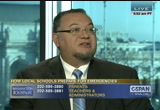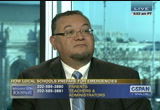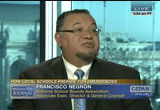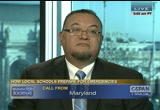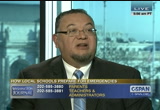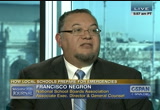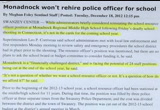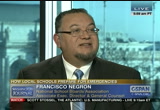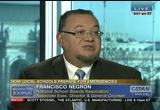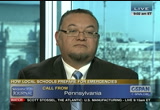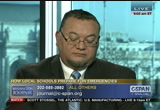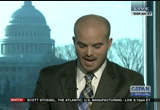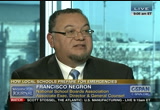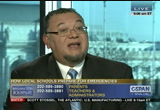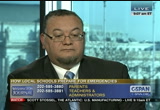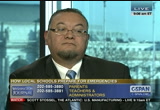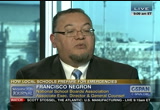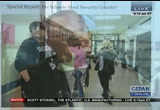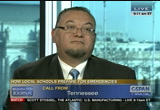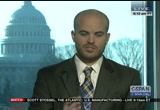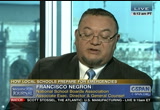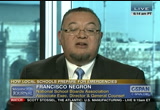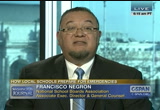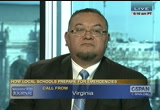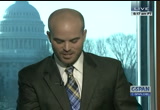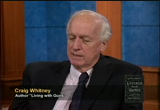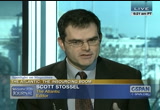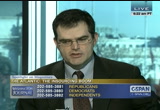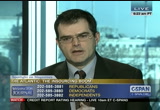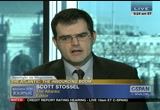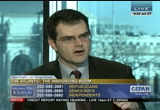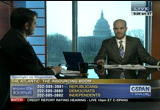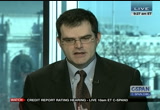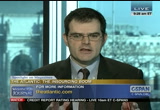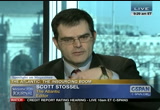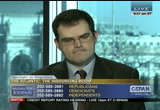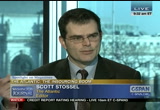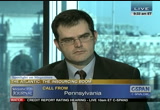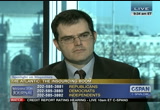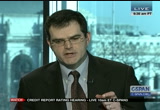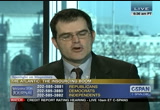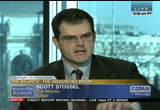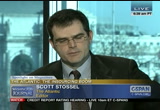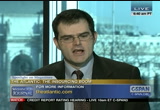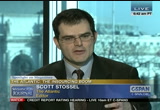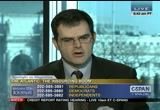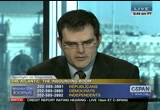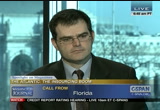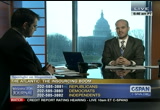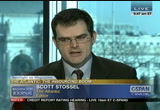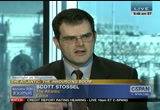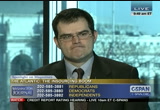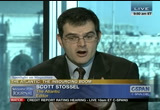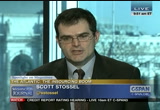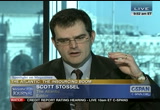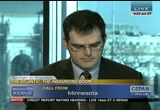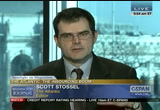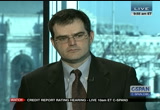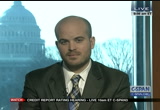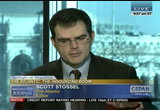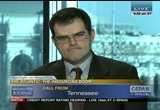tv Washington Journal CSPAN December 19, 2012 7:00am-10:00am EST
7:00 am
later, we will discuss the recent increase in u.s. manufacturing. we will also take your calls, e- mails and tweets. "washington journal" is next. host: good morning, it's wednesday, december 19, 2012. the white house has thrown its support behind several gun- control measures on tuesday in the wake of the shooting rampage in newtown, connecticut. a state department inquiry into the september 11 terror attack in benghazi, libya, criticized the agency harshly for inadequate security that -- but specificrecommend signi individuals.
7:01 am
and we begin today in on the details of john boehner's plan to avoid the fiscal cliff. we want to hear from you. how optimistic are you that a compromise can still be reached before the end of the year? give us a call -- and you can get up with us on all your social media web sites on facebook and twitter, or e- mail us. a very good morning to you. i want to take you to the lead story in today's washington post.
7:03 am
post. here's the headlines from "politico" today. i want to take you to speaker john boehner's comments on the state of the current negotiations and his plan b. [video clip] >> what the white house offered yesterday was $1.30 trillion in new revenues for only $850 billion in net spending reductions. that is not balanced in my opinion. at the same time we will continue to talk to the president, we will also move to
7:04 am
plan b. we all know every income tax filer in america is going to pay a higher rate january 1 unless congress acts. i believe it is important that we protect as many american taxpayers as we can. our plan b would protect american taxpayers who make a million dollars or less and have all their current rates extended. i continue to have hope that we can reach a broader agreement with the white house that would reduce spending as well as have revenues on the table. host: and some details on that plan b from a chart in the wall street journal today.
7:05 am
7:06 am
i want to turn now to a reporter with a roll-call newspaper on capitol hill. jonathan strong, thanks for joining us. i went through some of the details on what this plan is. take us through it when and how this plan moves through the system on capitol hill. i understand a committee hearing has already been planned in the rules committee today. guest: right, good morning. they are planning to take this legislation on thursday. the rules committee will meet at 3:00 p.m. today to vote on the rule.
7:07 am
the plan is to have two votes, one on $250,000 and down, to protect the rates on that income. the second vote is to protect the current rate for incomes below $1 million. it is interesting, because why two votes? i was told that the leadership wanted to get a sense for where members were on the 250 level, given that democrats quickly panned the idea to do the $1 million bill. host: what was the sense of the republican conference yesterday? john boehner met with his conference to talk about this plan. what came out of those talks?
7:08 am
guest: there was no revolt. there were several members who said that the tone was sober and subdued. very many republicans understand they are in a difficult position, they don't have a lot of leverage. the same time, there were very significant signs that it is going to be difficult for john boehner to acquire 218 votes for this. when he put out his plan yesterday, nancy pelosi and senate lawyer immediately said that democrats would not support this -- and steny hoyer. he would need 218 republican votes on big-ticket physical items. republicans over the current congress have lost 50 republican votes. people coming out of the meeting
7:09 am
yesterday, some of the key people, john flemming said they are not likely to vote for this. they don't want to go on record voting for a tax increase, which is how some conservatives define what this bill does. host: you talk about democratic reaction to this bill. i want to play the white house spokesman jay carney discussing this plan b. and then i want to get your thought on his comments. [video clip] >> the so-called "plan b" achieves nothing like what a bigger deal would do and you by justose -- i j extending the current law for those making under million dollars, you would lose hundreds of billions of dollars of revenue, relative to what the
7:10 am
president has proposed. a significant portion of that would go to millionaires, because everybody gets -- when you extend tax cuts for those making under $250,000 or $400,000, everybody in their benefits from those tax cuts. if you extend the tax cuts for everybody making up to a million dollars, it means everybody making more than that gets at least a significant tax cut on their first million dollars in earnings. including millionaires and billionaires. so the proposal is to give another big tax cut to the wealthiest americans at a time when we cannot afford it. host: jonathan strong of roll call newspaper. it looked earlier this week that the two sides were coming closer together. did "plan b" put a halt to that process? >> not necessarily. citing john boehner and obama are still talking behind-the-
7:11 am
scenes. a couple things. it's not a tax cut, because you are on extending the current rates. the second thing is i am surprised the democratic reaction was so quick and so negative, because nancy pelosi proposed the same plan months ago in a letter to speaker john boehner. yesterday i asked hoyer how you guys are going to whip against a plan to proposed seven months ago? he said that when nancy pelosi did that, it was just a political ploy to show how the republicans are in an unreasonable position. i don't think you escape blame just to say i was pretending when i proposed that a few months ago. host: not much time left before
7:12 am
the end of the year. do you dig there's still time for compromise plan to emerge? guest: i don't know. it is getting pretty dicey. i guess there's still a chance for a plant to come forth before the end of the year, but probably not before christmas. host: thanks for joining us this morning. guest: thank you. host: we're getting your thoughts all morning in this first segment on this "plan b" and the state of the negotiations over the fiscal cliff. give us a ring. our facebook page --
7:13 am
al from williamsburg, massachusetts, on our independent line. thanks for calling this morning. ."ur thoughts on "plan b caller: i'm watching this go back and forth. i'm a small business owner. washington has too much power. i have to come home from work and see what washington is doing to affect my decisions every day. the genius of this country is us collectively in what we do a each and every day. that's what counts. focus on washington and what the percentages are, that we will go up another percent
7:14 am
and that's really going to make a difference in what i have to do every day is absolutely ridiculous. think back 40 or 50 years ago, we would never have this amount of power in government. let's take it to the extreme. we need taxation, sure. we cannot have rates that 0% or 100%, but there must be an optimum level of taxation where we can tax the american people fairly that we can get the most out of this economy. host: thanks for the call this morning. tweets -- a few others --
7:15 am
7:16 am
7:17 am
next, maryland. dana, your reaction on the proposal from john boehner? caller: i am pretty pleased with the job he has been doing. i wish that a compromise had already been achieved. but all i hear from the democrats is complaining. i am bothered about the letter from nancy pelosi to john boehner some months ago, because if that was just a ploy, why was she playing like that? these are human beings. these are lives that depend on what the federal government does. many of us worked very hard to pay taxes that go to help many people who are not working. i am very -- deeply bothered by people playing games with mine earnings -- my earnings.
7:18 am
host: is there room for further negotiation or do you think the speaker has compromised enough already? caller: he has compromised too much. i have friends to own a small business and my parents used own a small business years ago but they had to shut it down because they cannot keep up with all the taxes and the red tape they have to go through proper repair business. now they are independent contractors with no benefits and they are getting older and have helped issues. i'm in a position where i have a steady job with the federal government and i'm a hard worker. there are lots of problems at the agency where i work. host: which is its? caller: i worked for the social security administration. host: joel on the democratic line in charlotte, north carolina. caller: good morning. regarding the fiscal cliff, ithe
7:19 am
republican party is driving us toward that. the republicans need to quit calling social security this thing they call entitlement. you are entitled to social security because you worked for it. i'm 73 and i worked for my social security. if they want to cut back. it's wrong. the republicans act like they won the election. they are trying to suppress the honest people spoke. the honest and decent people will come together in two years and they will run the republicans out. host: here's a headline from the new york post.
7:21 am
7:22 am
7:23 am
7:24 am
the democrats are saying, because i am always trying to figure out what they want. i boiled it down to four things. they want to tax more, spend more, increased the national debt, and blame everything on republicans. that is really all i get from them. they talk about the taxation and raising taxes. host: on what speaker boehner has proposed so far, do you think he has compromised enough already or is there room for compromise? caller: i think there's going to have to be some more compromise. i hate to say that, but i don't see any compromise coming from the democratic side whatsoever. all they want to do is tax more and spend more. i don't see them making any compromises on spending. i only hear them talking about spending. all they talk about is taxing more and blaming everything on
7:25 am
7:26 am
7:27 am
as i said, we will get more and to those subjects later, but we are talking about john boehner's "plan b" for the fiscal cliff and getting your thoughts. aggie is next on the democratic line. good morning. caller: good morning. i appreciate c-span. john boehner has given in too much. they may have won the presidency and the senate, but the republicans won the house, and that asays a lot. because the house controls the money. i think the debt ceiling should stay. they should not allow the
7:28 am
president to have it. as far as social security, there are 66 million people on social security, only 14.5 million are retirees. a lot of the rest is welfare. we spend probably $1.50 trillion all together with food stamps and all these checks that we send out every month. we are going to have to cut some of that, i know. the debt ceiling should stay with the house. host: talk about the role of the senate. you have talked about republicans winning the house and retaining control of the house and democrats won the senate. caller: the house has passed a bill and sent it to the senate. harry reid will not let them get to the floor. i think the senate needs to look
7:29 am
at harry reid and say, listen, if you are not going to look at these bills, then we will put someone else in your place and we will look at these bills. i think they should sit down and compromise. but it should be across-the- board. on social security, there is only 14.5 million actual retirees on social security. if 9 million physically and mentally disabled kids. 33 million disabled people on social security. the 56 million does not count, and there's another 8 million people receiving ssi. they have turned these programs into welfare programs. back when clinton was in, and whoever was the speaker bauhaus, he said that he had a four balanced budgets. -- and whoever was the speaker of the house. they took money out of social
7:30 am
security to balance two of those budgets. someone on your program the other morning was talking about that. host: on twitter -- and another note. senator daniel inouye will lie in state in the capitol rotunda. this was announced yesterday by the speaker's office. this is for public viewing on thursday, december 20. the senator was 88 when he passed away this week at walter reed national military medical center in bethesda, maryland. i want to go to patrick from texas on the independent line. your thoughts on this "plan b" compromise and the ongoing
7:31 am
fiscal cliff negotiations? caller: john boehner is pretty much -- he is not looking out for so many of the american people's well-being. he is looking out for his job along with all the other republican constituents in office. as far as plan b eigh, is like having a plan c. he wants it either to be his way or the highway. if they all would have followed plan, obama's job act half of this mess we would not be in. we would have a lot more jobs, people working. come comingve in co
7:32 am
out the door if they would have passed that plan. for those out there complaining about the so-called the democrats having a spending problem is not a spending problem. we are trying to recoup a lot of money we lost when we funded two wars under the bush administration, which is very expensive. i truly believe john boehner, if he would go ahead and pass obama's tax plan that he put forth, we would dig ourselves out of a huge mess that we inherited. there's no other way around it. they did it when clinton was in office. they went in there with a plan. they executed the plan, studied it. for the american people to understand that barack obama is
7:33 am
not in it just to spend money, he is in there to help out the country. host: earl is next from grand rapids, michigan, on the republican line. caller: thank you. i find myself hardly ever agreeing with a democrat, but the democratic lady a couple calls ago hit it on behethe hea. i am retired and just got my social security statement for next year. i contributed to the system 47 years. i discovered that a young girl on welfare with three illegitimate children gets $100 more per month from the social security fund and i do. two kids on ssi for $1,300. she never worked a day in her life, she gets $285. and she gets covered by
7:34 am
medicare. host: is this someone you know? caller: i notice for a fact. i worked as a volunteer at a social agency where i saw this happen day in and day out. i have witnessed this. host: you think congress needs to pull back on the social security compromises? caller: i think they have to take the people that are not entitled to social security out. of the out -- out of the system. why should we take someone who has dropped out w of societyout who has dropped out of high school? host: another story that we noted at the top of the program.
7:36 am
that's the story, if you want to read about it. we are still talking about "plan b" and the fiscal cliff and the state of current negotiations. rich is next from pennsylvania on the democratic line. good morning. caller: how are you? i would like to echo what the last democrats have been saying. i'm retired now, not by choice.
7:37 am
i would like to ever worked until 66, but i was forced into retirement after my company said most of the job to china. all you have to do is look around and see owns all the gas stations and 7-eleven's. those people are the rich ones that come from their countries and turnaround and bring their servants with them. that is who is running those businesses. host: what do you think needs to happen in the next couple days before the end of the year? caller: one has to happen if the republicans have to agree on bringing the jobs back from overseas. the democrats could maybe agree on cutting back on some of these food stamps, especially for people that have come here and have never worked for the country and don't deserve it. host: on twitter --
7:39 am
we are still getting your thoughts for the next five or 10 minutes in this first segment of the washington journal on john boehner's "plan b" that was released yesterday in case the negotiations break down over the fiscal cliff. william from north carolina is on our independent line. caller: i was calling to tell you that the last five or six years the big companies have not been paying taxes. during the 2008 recession, we
7:40 am
were down on our knees and here comes the big oil companies picking us in the teeth with gas at $5 a gallon. -- kicking us in the teeth. let the rich kick in a dollar each and start giving it to the poor people. that would get the economy going, because poor people don't have any money and that is the backbone of the country. when they start spending money, everything gets better. host: laura is up next from venice, florida, on the republican line. caller: i am retired nurse and i was agency-based, so i was allowed to go into hundreds of different health care settings. not one of these politicians are addressing medicaid.
7:41 am
even the republicans. the people who have worked in this country have paid all their lives and worked for their social security and medicare. that's a savings a plan a savings tax. it did not return interest. it invaded that funds for welfare and for medicaid, for people in this country who are not poor. you have drug addicts, alcoholics, and morbidly obese people who are killing themselves purposely, many of them who have children that are brain damaged from their behavior. you have people in the health care system over and over and over again at the public's expense, after layer after layer of services that people are not even aware of. host: what should congress do to address this issue? is now the time? caller: absolutely, because of
7:42 am
this fiscal cliff. the working, responsible citizens of this country having to pay for irresponsible people who have lived off other people and never take responsibility. people get up for work every day to pay for them. they never say thank you and don't tteach their children where the money's coming from. host: a story from detroit free press on the issue of gun control.
7:43 am
7:44 am
constitutional functions, because it is third in line of succession to the presidency of the united states, right after the vice president and the speaker of the house. as a practical matter, the president pro tem fills in for the vice president when the a vice president is not at the senate. t is the pro tem's responsibility to open the senate each morning, as ted stevens did each warrant, or to appoint someone usually with a letter. your viewers who watched c-span regularly at about 9:30 in the morning will hear a clerk read a letter on the senate floor that until the beginning of this week
7:45 am
was always signed by senator ouye appointing a junior senator. and the program signs bills when they are enrolled by the senate or after they pass both chambers rather and are on their way to the white house to certify they have in fact been passed. host: he was elected to this position. is it based just on security? guest: by tradition, is based on seniority. there's nothing that actually specifies that it has to be the most senior member of the majority party in the chamber, although in recent practice it has been. it has gotten to the point where that is a perfunctory most of as important as the election is, that it was really consent.
7:46 am
everyone sort of acknowledges this is the way the process works. by and large, people go along with it, although there are academics, some political commentators, who think the job should be taken out of the presidential succession order, because of the way it has developed into being a largely ceremonial post for simply the most senior senator in the chamber. host: talk about the rotating seats on senate committees because of his death. there's an article from the baltimore sun talking about senator dianne feinstein of california possibly becoming the head of the judiciary committee which patrick leahy led for a long time. guest: because of the passing of
7:47 am
inouye, it opens up the appropriations committee chairmanship. we could get announcement about that as early as today. it is expected senator patrick leahy will slide over from judiciary to chair the appropriations committee, which sets off new developments. dianne feinstein has the seniority to take over the judiciary committee. we think we have figured out what the announcements would be because senator dianne feinstein said that she did not expect to be the chair of the intelligence committee. having covered the hill, can you know that when someone says they're not point to chair a committee usually means they are going to something they consider to be greener pastures. host: what did senator patrick
7:48 am
leahy say about what the position means to him when he was sworn in? guest: during the ceremonial swearing-in in the old senate , as we were waiting for vice-president joe biden to make his way into the chamber, senator leahy was talking to reporters and photographers a little. he said it was an honor but that it came under such unfortunate circumstances, because senator inouye was a beloved figure in the senate and widely respected and such a good friend that it was one of those honored positions to take but the circumstances made it difficult to celebrate. host: thanks so much for joining
7:49 am
us this morning. guest: thank you. host: time for a few more of john boehner'son' "plan b" on the fiscal cliff. lloyd from florida. thanks for calling. caller: i am in florida visiting my grandson and my son. i just turned it on and i am a senior. forgive me for asking, but i just got to the program on and and getting everybody ready for school. what exactly are the concessions that the president is making regarding social security? host: we can go over that for you, but if you want to give your boss, i can pull up a chart. -- if you want to give us your thoughts. caller: i understand they want
7:50 am
to cut money. but i agree with some of the other callers. the people who have worked their entire lives -- and i am one of them. even as a senior, i'm trying to re-enter the workforce. i hope they are not proposing cutting benefits for the small cost-of-living increases. i realize people need -- who need to be on welfare, it would ever their circumstances -- for whatever their circumstances may be. it is a blessing the programs are there. but i hope it's not a concession where people who have worked their entire lives and are depending on this, that they are cutting the little cost-of- living increases or doing anything that will affect the people back legitimately have worked so hard and paid into it all their lives. host: information from the new
7:51 am
york post. caller: one final question. are they trying to change the eligibility dates for people? host: the major concession that has been talked about in today's , do you think there's time to change the direction before the end of the year on whether to besides seem to be going on social security? caller: i would hope so. i do follow you guys faithfully every day.
7:52 am
whatever decision they reach, even if they go beyond december good hope that it's a agreement. i realize both sides have to make concessions. i hope they just don't throw something together haphazard and say we've got it done and is something that may come back to haunt us. host: thanks for the call. that will do it for this first segment of the washington journal. next we have congressman tim murphy and congress, and grace negron. they will be here to discuss ways to strengthen the mental health care safety net in the wake of the newtown shooting. later on, school safety back in the headlines, in the aftermath of newton. we will speak with of the general counsel of the national association of school boards on
7:53 am
7:54 am
desk. that night we did not get to move into the white house, because nixon had left so quickly, so unexpectedly, they left their daughters and son lost to pack all of their clothing and belongings. it took seven or eight days. we had to go back to our little house in alexandria, virginia, in suburbia. the neighborhood was surrounded by secret service. we had been living there since dad was vice president. mom was cooking dinner. we were literally sitting around the dinner table and she was cooking dinner and looks over at my dad and says, jerry, something's wrong here. you just became president of the united states and i'm still cooking." [laughter] >> growing up in the white house, sunday evening at 7:30 eastern and pacific, four days
7:55 am
of american history tv, right through christmas day, on c- span3. >> one of the things that did surprise me a little, i did not conduct a nationwide survey, but among people who owned guns that i spoke with, the majority of them, their reaction, your way of thinking before and after you have a gun is very different. i think any law-abiding gun owner realizes when he's got a gun that it is a huge responsibility. that if you use this weapon irresponsible it, you could get yourself into legal trouble or cause unnecessary misery and death to people you did not intend to harm to. it makes you very careful. >> or should make you very careful. >> for most people it does. i think it would make people
7:56 am
more careful if they all had to pass some kind of tests before they get a license. >> you have to do that before you get a license to drive. >> you don't have to do that to have begun in many localities. >> a former new york times editor on the history of gun ownership and control in america. the saturday night at 10:00 eastern on "book tv on c-span2. >> washington journal continues. host: we are joined by the cochairs tim murphy and igrace napolitano. what questions do we need to be asking about our mental health system in the wake of the newtown tragedy? guest: several.
7:57 am
we have to get america focused on understanding mental-health. prolong we have ignored it or have talked about it in a cursory manner. it involves the issues of mental illness are not the same as 20 or 30 years ago. we understand more about. aspects and medication and we need to be addressing this. another aspect is when it comes to federal government, we need to review what we do. do we have enough funding in the areas that can help? people? and is it being used effectively? not only in residential care, outpatient care, but in research as well. there's still a great deal we need to know about understanding the mind of a violent person. we have a long way to go. so there are several aspects we can continue to pursue.
7:58 am
host: we will get deeper into those in the next hour. we are taking your calls on the issue. the numbers are up on the screen. and the phone lines are now open. we also have a special line for mental health professionals. 202-585-2883. congresswoman, i know the details are still uncertain about what happened in newtown. from what we understand so far, do you think our mental health system should unable to vote prevent this? guest: it would not have, simply because there are not enough of them. families have tried to get help in school districts and there's not available, because there's no funding. the general public is not informed and educated as to what some of the symptoms are.
7:59 am
or how to address the symptoms at an early age. we started a program 11 years ago for mental health delivery in schools. i have a bill with no. republicans no. to be able to put on site services clinicians to help the children, families, and educators. we do need funding. instead of closing hospitals. putting funding in other areas where we need to help our children grow help the and able to learn in schools and help educators be able to teach so they're not dealing with children misbehaving in the classroom. there are many aspects to it. most of them are youngsters who have done these tragedies, young men who have had a background of mental health issues. host: adult mental health in 2011, from the substance abuse and mental health services
8:00 am
8:01 am
guest: we to list everyone of those -- we need to list every one of those. there are programs under health and human services. there are things that do with housing. we throw a lot of money at this. we have to make sure they are effective. this is where congress can play a vital role. is it getting to the level of treating the patient or is akaka. washington, d.c.? --or its it caught up here in washington, d.c.? we want to make sure we're doing a thorough review of the law. every state has some law -- if
8:02 am
you're over 14 in pennsylvania, you can sign yourself out. there are a lot of things we don't let kids decide when they are 14. "i need them to be in an institution or hospital, psychiatric hospital or something." the 14 year-old ensign themselves out -- can sign themselves out. a lot of these kids have a situation where their parent is scared to death of them. parents maalox themselves in a car -parents- may have locked themselves in a car. they try to get them in a hospital setting.
8:03 am
another aspect is when it comes to dealing with danger, you have children who are in households and parents are feeling in mobilized. conn just turned down a law which would have made it easier to have institutional care for these kids. host: the congressman wants a list of the mental-health programs. are we seeing cuts potentially for mental health programs and what can be done in the next 11 or 12 days? guest: there have been cuts. host: you sent a letter to gether?
8:04 am
guest: they don't consider it a priority. that is unfortunate. it is unconscionable because they are of the front line and they should be able to manage the issues that have in their own backyard. we have the proposition in california that past, a bond bill. there is still not enough. host: these cuts -- who has been pushing these cuts? where are they coming from? guest: washington. guest: there will be further cuts to that. we have an open and honest dialogue on this. you cannot have automatic cuts on these things.
8:05 am
we recognize we have a huge deficit problems. this has woken up to understand that we have to look what programs and what level of funding. host: how do you keep members in engage on this? guest: you cannot. they are not listening. host: posttraumatic stress disorder. guest: you send the word out repeatedly to people. it is a stigma. we need help for these men and women. these people then get services and you will have people that will be able to work and function and take care of families.
8:06 am
host: we are taking calls and the lines are open. air is a special line for health care professionals -- there is a special line for health care professionals. joseph, good morning. caller: good morning. i worked in new york city for about 28 years as a certified guidance counselor. if i could give my personal testimony. i studied at hunter college in new york for a master's degree in counseling. that master's degree at that time required only 30 credits, graduate credits. i was in the last class that was certified at 30 credits. after that it became 48 and now it is 60.
8:07 am
we had counted professors. the objective was to put on the front lines some trained people to just be listening, have disturbed children referred to us. we had enough training that we could try to help them. we could refer them. we had psychiatrist in new york available. as anw working in florida adjunct professor at the college level. my feeling is, the community college level and maybe colleges in general, i do not feel the counseling staff feels more or less the responsibility to really help these disturbed
8:08 am
students. they would just as soon see them leave or dismissed. guest: let's look back to the virginia tech shooting, to the deadliest shooting to date. students were seen their grades posted on bulletin boards. if a student is a threat to themselves or other people, colleges were saying, we do not want to breach confidentiality. you had faculty and administration aware that a student had a problem and did not do anything about it. most common aspect of violence is suicide. we work to get clarification.
8:09 am
i'm not sure it goes far enough. you have universities more concerned about being sued and getting help. in many cases, they are alone and have other disturbances and people start to see signs but they do not speak up. we cannot have this stigma. the dialog needs to be happening, to be talking about getting these kids help. guest: the families do not know sometimes that the child is having problems. let them know that something is wrong from their standpoint and help the individual family member be able to get some support services somewhere.
8:10 am
them.re fhere for host: a story came out in the wake of that shooting noted parents sometimes find it tough to admit that their child has a mental health issues. guest: we want people to know what the signs are. we have tried to put out information about the beginning signs. the idea -- we don't speak about it in the latino culture. "if you have a problem when your child or spouse, ask for help. go to your church." .here's a stigma it will not go away and to
8:11 am
realize there is help for individuals and we need to be able to get assistance and address these problems early on, especially at a grammar school level. host: we have a comment on twitter from joseph. details are still coming out about regaining control when your child is out of control. what have you found out? guest: there are rumors about as syndrome.erberg's host: the vast majority of mental issues are not associated with violent outbursts.
8:12 am
guest: that is right. we should not be afraid -- the problem is not getting the treatment. the nile dozen work as a treatment mechanism -- denial doesn't work as a treatment mechanism. they create problems in their lives. they have difficult analyzing relationships. they turned sadness and bad feelings into anger. they lack of empathy towards other people. ger to gain an control over other people. they confuse anger with self
8:13 am
esteem. they can be very nice and charming when they want to b e. this is where parents think that their kid doesn't need to get help. if you find yourself afraid of your child, you need to get help. make sure the weapons are out of the home. host: there was a story in the huffington post. "i am adam lanza's mother." guest: a horrible story. the mother would tell her kids to sit in the car and she would walk up the knives. she knows what these angry children are like.
8:14 am
there are ones that i tell parents, you cannot handle this on your own. i would call for help. exas, you arem ta on. caller: thank you very much. this subject screams at me. they are not mentioning something that i did not believe 99% of this country knows. there is an organization in arlington, virginia. it is the grandfather organization over mental health. i met a lot of them when i was doing therapy groups as an educated social worker with depression.
8:15 am
i've always worked in social work. they could have as much influence as athe nra. host: you are nodding your head about that. guest: i beg to differ with you on that. they are part of my task force which meets every other week with about 40 other professionals from schools and psychologists. we work on the different issues. host: what is their mission? guest: to work on the mental health issue. they did not exert as much of
8:16 am
their influence where they could or should. i think that is a stigma and that they are not as well organized in outreach and be able to get out to the different areas that are needed. i know them very well and they are wonderful people. there are wonderful organizations that need to work with them. they are effective. we need to work at the local levels at the schools, where children were working at the -- they can begin to spot some of these disorders and talk to the parents and to try to solve them at the early ages. that is one thing that one group does. they provide grants and scholarships to put on site
8:17 am
clinicians to help these youngsters, educate the teachers and work with the families to get to the bottom of what eails a child. guest: we need to rethink this issue. i'm hoping that a discussion will take place with regard to the automatic sequester. we could go line by line. there are areas of funding in the mental-health field that come through several departments. that is what we can work to find how to get that money. host: victor writes in on twitter. up next, jason is from florida on the independent line.
8:18 am
you are on. caller: yes, sir. thank you very much. there are plenty of people in this county -- disabled veterans that are homeless in the street while mental-health people with wounds and theyd are getting funded every month to turn around and get more drugs every month. there is a homeless veterans in this place. the government is paying these people to stay mentally ill. they are not getting help. guest: a couple of things. i am also an officer in the navy reserve.
8:19 am
if combat veterans at walter reed bethesda hospital -- we have combat veterans at walter reed bethesda hospital. i get calls from the veterans talk about how this is brought about serious memory flashbacks. they have seen children in afghanistan and iraq that had been killed. i want to speak out to veterans. if you have this kind of feelings, get some help. there are programs to help homeless veterans. we need to have our reach to them. it is a matter of being effective in the community. the best thing is to get somebody off of drugs.
8:20 am
if they feel isolated, living in a basement and playing video games and drinking alcohol, that is not the answer. we have to be doing more outreach. if you know people like that, please encourage them to get help. it is a sad story we cannot let happen. host: we have a special line for mental health professionals, 202-585-3883. this is cynthia from florida. thank you for joining us. caller: you are welcome. thank you for taking my call. one reason that is being missed is the reason that people did not bring children to schools for health is because they get labeled for ever.
8:21 am
i am a professional and a consumer of mental health services. i have to tell you that it is almost impossible to find mental health services for people who are on medicare where they do not have to add any extra money . i have had a bipolar and i accomplish getting a master's in nursing and raising my child, running hospitals. i'm in a position of not being able to get the care that i know that i need. i have lived with his now. host: talk about the stigma issue. guest: you're very right.
8:22 am
services are not available for some of the medicare recipients. we want to make sure we have mental health parity, to be able to provide those additional treatments for people who need them. we have left this too long. the stigma is the biggest reason. people who have problems do not normally vote like children. those afraid to speak up do not know how to identify what they are feeling to be able to ask for. schools host: that label kids that have these issues -- host: schools of that little
8:23 am
kids that have these issues. guest: a label can be a lock but it can also be a key. let's opt for the key. we have done some things in congress, to change the copays of medicare. some citizens cannot afford this. acatental health parody acity was passed. people involved in these fields, or is still a shortage -- there is still a shortage.
8:24 am
there's still a lot of barriers there. we have come a long way in identification and trade and of mental illness -- and treatment of mental illness. guest: the privacy issue. andcannot just the lgo out blurt your name. that person is then labeled for ever. you have to be careful. there are laws that prevent us from divulging. committees have the responsibility to work with the families and to disseminate information of how this can be helpful to people.
8:25 am
to be able to go to a place where they can help identify if there is an issue with a child. host: after the shooting in auroroa, do we need to start rethinking the privacy concerns -- aurora? guest: schools should be held harmless if they are acting in good faith. we have a duty to inform and disclose. if we think we have a patient that is making threats, we have a duty to call police and notify authorities. what if you're not sure? this is an area where we need more research.
8:26 am
some of the research to go towards that. i have contacted the white house on this. we should be part of this. don't just do it for a couple of days. you are talking about a key component here. if neighbors and friends are concerned, call the mother and father. sometimes they may not know. "thank you for calling. can you give me some ideas of what to do?" host: we are talking with congressman tim murphy and congresswoman grace napolitano. they are the co-chairs of the mental health caucus.
8:27 am
caller: good morning. i think part of the problem of what is going on with these children is that i think the time that we gave the power back to them when we can no longer disappoint our children to the point where i think that we are doing this greater disservice. i think we coddle them too much and that is lending to a set of values, i guess. ing ourdisservice s children. host: ted nugent in the washington times -- "the washington times" --
8:28 am
8:29 am
to do with it because everything is allowable. somehow we have to go back and begin to understand responsible ways to raise our children the best way we can so they can be good citizens and function as we have. host: monty writes in on twitter. guest: it is also parental involvement. parents will call a lawyer for someone else if the school says the child has a problem. the school should not say, "it is all the parents' fault." even the best of parents can be overwhelmed.
8:30 am
what happens when the father is not involved? sometimes kids will obsess on the video games. sometimes the best thing a parent can say is "no." if you have a child that is calling the shots and parents say they are afraid, that is not the way to raise children. you can still have mental illness as part of that child, even with the best of parents. host: congressman murphy is the co-author of a book, "overcoming passive aggression," which is published in 2005.
8:31 am
william is up next from pennsylvania on the republican line. caller: good morning. i want to give my condolences to the 20 people that got killed. i am 67 years old. hello? i could not hear you. had two kids myself --i had two kids myself. we have to tell people how to raise their kids. i have been involved in the government. we give too much writes for the government to tell you how to raise your own kid -- we give to
8:32 am
rights.ch your job is to protect us. that is your job. guest: government should not be the parent and to provide the kind of assistance that is needed. there is lots of levels of responsibility. we cannot replace what parents need to do. we are not going to get to a solution if all we do is figure. and come up with a couple of things. if we think we have done something, we have done the right thing. we have to be candid with ourselves about the role of parents and television and video games and schools.
8:33 am
all of these things have to be discussed in this. these things keep getting pushed aside. guest: we had a lot of discipline with our children. it is gone or eroded. there are dysfunctional families and they can raise a child by themselves. it is helping them be able to be more effective parents. host: 1 digit both start the congressional -- why did you both start the congressional mental health caucus? guest: i have been involved at the state level in mental- health. the mental health caucus was dormant. tim came along and i asked him to join me so we keep both sides
8:34 am
involved. the idea is to raise awareness and reduce the stigma. the staff is the ones that help the members where there is more dialogue. guest: people can call and member of congress and ask if they are a number of the mental health caucus. do we have the right program? if not come as congress to take their right steps. i know lots of americans are deeply concerned about this. there are two things you can do. guest: many democrats but few republicans. host: market is up next from ohio -- margaret.
8:35 am
caller: my son is schizophrenic and has been for 50 years old. we have begged for services. we have begged for help. he cannot work. he is totally medicated and living -- i am disagreeing with the republican congressman who says we can do a better job with accounting. excuse me. and we can tell our parents to do a better job. there were no video games when my brother was growing up. guest: i said many times you have the best of parents but these problems still emerge.
8:36 am
there have been a couple of shootings in my own district. there was one that was diagnosed as schizophrenic. i am not blaming this on the parents. the issue is getting them help. in a move to be compassionate, we shut down the institutions and hospitals. we do not want them as warehouses for the misbegotten. there are people that cannot function in society. we need alternatives for them. they need alternatives. mantle of this is something that can be treated and medication can be helpful.
8:37 am
i have had situations like this. many times parents are told if your child does something wrong, we will get them into a juvenile detention center. we're turning those into the warehouse is for the mentally ill. that is wrong. we need places where people can get ongoing treatment and help. i never said it is the parents' fault. i am saying all of us are in this together. host: we have some statistics -- host: this was any time when a lot of people were affected by the economy and perhaps seeking
8:38 am
these services. guest: there are so many that are just institutionalized without any assistance. they come out worse because they get no services. host: we haven't been out that came in this morning, no name. -- we have an e-mail that came in this morning, no name. congressman? guest: you have to call your psychiatrist anyway. you can also go to emergency rooms.
8:39 am
it is important it talk to the doctors. "i'm having homicidal concerns." it is extremely important. go to the emergency room and talk to the people there. the need to get to a hospital right away -- you need to get to a hospital right away. host: shirley from palm beaach, florida -- palm beach. thank you for joining us. caller: i work and human services for around 20 years after finished raising my family. 20 years of that was in a psychiatric and hospitals. i myself suffer from depression.
8:40 am
i found that i have allergies and there is a book by a doctor marshall mandell and he talks about how elegies can affect just so severely that they can cause depression, retardation, autism, and many physical diseases. hypertension and hypoglycemia, etc. it is hard to say this because people look at this like i'm crazy. look at your diet. how many people believe it schizophrenic could be caused by your diet and things you could be allergic to? guest: do people have food
8:41 am
reactions? yes. as a cause of schizophrenic and autism, no. there is a genetic issues, many other aspects here. host: could you give folks your background? guest: i am a psychologist by training and i worked in the navy reserve as a psychologist. it is unjust aspects of food. -- .t isn't just aspects of food we know when a person is isolated and not eating healthfully, a lot of those things can impact brain development. it can worsen a mental illness n.pto
8:42 am
but that the lifestyle changes as a part of that. guest: thank you for your call and for raising children by yourself. that can cause depression, too. i have raised five. my husband was not the best parent to my children. i was the disciplinarian. there is a clinical aspects that have to be taking care of. if you eat well and eat the right foods, you will not have as having an impact in your
8:43 am
ability to deal with these issues. that is part of it. that's one of the answers. guest: as a single parent, one in four people whether it diagnosable illnesses. maybe it mild depression or anxiety or worry and in many cases treatable. .ost: let's go to joanne caller: thank you for taking my call. something about medications and the problems they themselves can cause. i have been depressed since a teenager but was never medicated. i developed chronic pain that
8:44 am
was hard to deal with. my doctor said that i was depressed. they put me on prozac. i developed a panic attack bad enough to be put in the hospital. in there, i said, "these two i have been put on recently, that be the problem?" he said no and put me in a room. guest: was the physician who prescribed prozac a psychologist? caller: it was my primary care. guest: i and stan and dr. is trying to do when someone has chronic pain.
8:45 am
your brain is getting overwhelmed. it is important that the person get the right mental health treatment. you need to see a psychologist. the untold need to get over that is not the right treatment -- to get over thatovering told is not the right treatment. guest: ensure that they know what they are doing. guest: we have seen this before . people take medications and more medication for the side effects. if you stop taking them, you can
8:46 am
have serious problems. you can have serious problems if you smoke or drink with them. hopefully we will be able get together and talk to the administration to find out how we can work at this level to begin to help people and put the funding that is necessary and get these agencies that have these programs. is the money being utilized at the local level? we can talk and put -- we'll have a problem if it is not being taken at the local level.
8:47 am
more education to our members of congress to be aware that this happens in their backyard. guest: we would both welcome meeting with the president to discuss these issues. host: congressman murphy and congresswoman napolitano, thank you for joining us. host: schools are taking a second look at safety procedures. thel talk about what national school board association recommends. and now a news update from c- span radio. >> some business news. general motors is reporting they will spend $5.4 billion to buy back stock from the federal
8:48 am
government. it will pay $27.50 per share. the government will have 400 million shares -- 300 million shares. on capitol hill, the senate judiciary committee will hear about voting problems in november's election. the paddle taking up the voting rights act -- the panel take not the voting rights act. charlie crist is one of the witnesses. is live at 10:00 eastern online. task force to draft policies aimed at preventing another mass school shooting. the president is likely to pursue some tightening of gun control laws.
8:49 am
joe biden is being tapped to lead the effort. the announcement scuttled for later this morning. those are some of the latest headlines on c-span radio. [video clip] >> our first experience was to come in envelopes thought different ways than any other family. after dad was sworn in, we went and took a photograph of the family behind the oval office desk. that night we did not get to move into the white house, because nixon had left so quickly, so unexpectedly, they left their daughters and son -in-law to pack all of their clothing and belongings. it took seven or eight days. we had to go back to our little house in alexandria, virginia, in suburbia. the neighborhood was surrounded by secret service. we had been living there since dad was vice president.
8:50 am
i will never forget it. that night, mom was cooking dinner. we were literally sitting around the dinner table and she was cooking dinner and looks over at my dad and says, "something's wrong here. [laughter] you just became president of the united states and i'm still cooking." [laughter] >> growing up in the white house, sunday evening at 7:30 eastern and pacific, four days of american history tv, right through christmas day, on c- span3. >> "washington journal" continues. host: a lot of parents of wondering about safety and emergency response systems in their children's schools. we're joined by francisco negron to discuss this issue. water school boards doing to try
8:51 am
to learn from the newtown tragedy? guest: schools are still the safest place for students. schools continue to be safe places. as horrific as the tragedy was newtown, it could have been much worse, and the teachers and staff and the minister raiders not followed the lock down procedures that they had been trained to follow -- and the administrators not fall the lockdown procedures. -- not follow the lock down procedures. it was the training that worked in making us a less horrific tragedy. host: we're doing the telephone lines and all the difference.
8:52 am
parents can call on 202-585- 3880. is a line for teachers and administrators, 202-585-3881. all others, 202-585-3882. how prepared are our schools overall right now? guest: i think our schools are very welsince columbine, schoole been thinking what they need to do. that brought to the nation's attention. there have been other school shootings. now have an external shoot er. in, and others, schools of concern with the internal student who may be isolated or depressed and may have mental health issues.
8:53 am
they have been trying to identify those students as a way of stemming any violence from happening. host: what do you do about it and external threat? guest: they have to work with their communities to identify ways to prevent that. this is a change in the way these things are happening. host: we are talking with francisco negron and setting up special lines in the segment for parents, teachers, and administrators. what are schools required to do from the federal level right now? is there a blanket protection that all schools have to have? guest: congress passed the
8:54 am
gun-free act.ol a it was subject to the specific state laws. the state might permit a concealed weapon. the federal law is subject to what the various states themselves to. host: do certain states have different production? guest: 3 states have limited protections. they allow guns to be carried into schools. they do not have any restrictions about whether they can be concealed. most states have restrictions.
8:55 am
host: folks will want to know what those states are. guest: new hampshire, wyoming, and hawaii. host: a parent from maryland this morning. you are on with francisco negron of the national school boards association. caller: i have a child that is bipolar. host: go ahead. caller: i have two children with bipolar. one was -- hello? i have two children with bipolar. i used to try to get some help for them. i call the police on my teenager. he had two knives.
8:56 am
the police just talk to him and left. i found the knives in their coat pockets going to school and nobody did anything. host: if you want to talk with police interaction with school boards in these situations. guest: the caller raises an interesting point. parents are often the first line of intervention. students in columbine were isolated. parents did not know what was happening. it is important for parents to serve as the eyes and ears for the community. i am glad the caller did what she thought was right.
8:57 am
it is unfortunate it didn't work out the way she anticipated. i think that is important. school is doing the right thing are communicating with law enforcement and with parents. principal at sandy hook shared with parents an important letter about the schools lockdown procedures, talking ho schools admitted.ents would be host: we have a question on ngfileclerk. boriongfilecler guest: schools are places for children to learn and to feel safe. they are not fortresses and prisons.
8:58 am
we would not want to send our children to places where there would be confined. it is important to understand that school districts need to work with their local law enforcement agencies to decide for themselves whether it is important to have some kind of armed presence. oftentimes that works very well . one thing that our state associations in courage is for school boards to have an open line of communication with their local law enforcement organization so resources can be available to school districts. host: an article from "the sentinel" in new hampshire --
8:59 am
host: this story came out yesterday afternoon. host: that from the superintendent in the district. talk about this funding situation that school systems are facing. guest: school resource officers did not come free. you want those sworn law enforcement officers there to deter crime. you want people that know how to operate weapons. that of course comes at a price
9:00 am
. what the government can do is provide a grant money, funding money so that school districts do not have to make the kinds of unfortunate choices like the school district you just identified. host: a couple of tweets that have come in -- this is an issue that has come up earlier this week. just yesterday, the governor of virginia was pondering army school officials schoolwtop -- school officials in washington
9:01 am
on iridium program. -- on a radio program. guest: we want people who are trained law enforcement officers who know how to use firearms, who know how to detect crime, who are trained to do this as a profession. teachers and administrators are hired to teach our own children. two very different skill sets. i want to go back to the first tweet, because as that as it may be that we use to do all kinds of other drills, doing those kind of drills today really works. in a school like sandy hook of unfortunately, 20, of them were killed, but the numbers could have been much greater. those teachers reacted according to the training and drills they had instilled into their students and guided them into safe areas.
9:02 am
the real heroes in this case are those teachers and administrators, and the valiant principal and the school staff that did a good job of keeping the remaining children safe. pennsylvania. to good morning, dan. caller: good morning. the school where i live, they have a buzz-in and they have a camera and they also have glass doors, so that is counterintuitive. a comment about the previous program also, actually, reduction of violent crime in the u.s. and beyond. they linked it to the elimination of lead in gasoline. they are actually putting fire retardant in a soft drinks to stabilize color. and a police officer also went to a middle school to talk about
9:03 am
drugs. he went to the restroom and left his gun behind. this was a police chief in pennsylvania. things to ponder. host: keith is from san diego, calif. -- kate is at from san diego, calif., a teacher out there. caller: i am a former teacher and i'm interning as a school counselor. in san diego, are you services has a program called rsvp, reserved senior volunteer police. there are a number of seniors who really want to be active in the community. workday unable to be organized in each community -- if they were able to be organized in each community, then you could avoid like the situation here where you -- if he were to have somebody at a
9:04 am
gate able to check people in, armed with just a radio, then they could be able to alert someone as they come through the first initial warning barrier. guest: the caller makes a good point about retired seniors. the school the third in pennsylvania voted just this week in this area and to employ law-enforcement officers that were retired. certainly, they have the skills to do the job. that is one answer that some schools are looking to. host: some stats on school safety from a "washington post" story this week that safety is a hot topic as schools and says current emergency plans. citing information from michael dorn, an executive of a
9:05 am
nonprofit that has developed a safety plans for thousands of schools. mr. negron, how much is it going to cost to upgrade all schools to get them to a level -- this level of strong safety? guest: i do not know where mr. verdoorn got his statistics, but i think he is wrong. in a study done by the national education association for statistics, 90% of schools had checked in procedures -- check-in procedures and an overwhelming majority had the ability to lock down students. and of those, 20% had some sort
9:06 am
of on to -- of law-enforcement on duty. i'm not sure about those statistics. here is the thing. schools already know they need to keep kids safe. we need to understand that an armed gun man who has to blast through secured doors and class to get to children is going to wreak havoc in a school setting. our schools are not fortresses. we do not want them to be. in many ways, we need to think about what is happening in society that leads to those conditions that are external to the school. i do not think it is fair to say that schools are not following the appropriate safety measures. parents should feel comfortable that school districts and school boards are doing the right thing. in this case, at sandy hook, they have the policies in place and the teachers ask -- acted upon it and kept the vast majority of the children safe. host: we are talking to francisco negron, the chairman
9:07 am
of the national school board association. and goodto kentucky, morning, richard. caller: good morning. you have a very tough job, mr. negron, especially with recent events. and you quoted ted nugent earlier and up the problem with this country is the erosion of fame the values and such. what kind of a family values did the mother of sure that young man when she took him to the gun range endicott -- to that mother showed that young man when she took him to the gun range and showed him how to use an assault weapon that he turned around and used on these children? the congressman on earlier talked about the fact that we need to have serious debate about what to do about mental health. the debate is over. it ended with the bloodshed of the 6-year-old's. i remember back in the 1960's
9:08 am
when i was a kid and suddenly, sitting in front of the television, they showed videos of the slaughter and carnage and everything that went on in the vietnam war. then you have hundreds of thousands of people marching in the streets. i'm afraid to say it, but we need to know exactly. we need to know in detail the deaths of those 6-year-old's. that is the only way this is going to change. host: what questions have you been asking of your local school board as a parent since friday? afraid to say this. we have the greatest protection of our prisoners across this country. these are the bad people. and we have armed guards. i'm afraid to say it, sir. we're going to have to do better to protect our children, and it
9:09 am
is going to take armed guards. host: mr. negron, what questions short parents be asking of their school boards in the days after the shooting? guest: i think parents should be approaching their school boards to ask them to see their emergency preparedness plan prior to understand how that works, to understand what their responsibilities are when there is a tragic event. and by the way, not just in school shooting. hurricane sandy is another kind of emergency that often ends up displacing children and children get hurt. natural disasters, epidemics, the whole gamut of that school districts to consider. parents ought to be asking what the plans are, what their role in the plan is, how they can help schools make the plan work. where are you doing to connect with your local law-enforcement agencies? -- what are you doing to connect with your local law-enforcement agencies?
9:10 am
every school district in the country that belongs to one of its state associations or school district has access to model plans, models safety plans, best practices that are happening. i think that parents ought to be going to the school boards and saying, what information are you getting from the state associations? what information are you getting from the school board association? how can we gather all this information to design plans that help every individual in our community? and every community has a different needs. some school districts may be on carta with the idea of having armed and on for some officers in their building -- may be uncomfortable with the idea of having armed and law- enforcement officers in their building. some may want a patrol car our friend. -- out front. host: american hero joe writes in on twitter --
9:11 am
and one other tweet this morning, dara which asks -- guest: i think we are talking about the same situation. those are some serious implement the required training to use. our advice would be to leave that to the law-enforcement officers who are trained. host: let's go to lisa in tennessee. you are on with francisco negron of the national school board association. caller: my thought was the same thing as the gentleman just said. if the present -- if the principal had mace or proper spray or something -- pepper spray or something, or a button that goes directly to the police station. they just had all of those people on the phone trying to
9:12 am
explain what was happening when they really did not know. usually, the first person, a hall monitor, or the secretary and the principal's office, those are usually the first people that see someone coming into school. those two that you had on the board, the first thing you mentioned -- on before, the first thing you mentioned was that we needed more money. that young man that did the killing was living in a $1.6 million home. his mother had enough money to buy the expensive guns. what we have to do is tell families, you have to take for possibility. you cannot hide from this problem. i know parents. i work with them. they do not want their child to be different. but if they are a danger to other people, families need to take their responsibility. host: are you satisfied with the security measures that are in place at the school where you work? caller: i am 75. and we do have a resource officer at our high school. we do not have one in the
9:13 am
elementary schools yet prepared -- in the elementary schools yet. you do not want to think that you will need one, but our children need to be protected. look at the guy in the theater. his family knew he had problems. my brother was shot and killed by a man, that his family knew he had problems and they did nothing to help him. that is the first line of defense, the family recognizing and accepting that they need help. she should never have bought those guns. she knew she was losing him. families are the first line. host: lisa brings up the idea of other protective measures, including a bank-like pennington -- panic button. are some of these options being considered in after last week? guest: school districts may consider those resources for themselves. i think the caller makes a terrific point about a first line of intervention i mentioned
9:14 am
that earlier about the important role that parents can play. here to fore, everything and we have seen our internal -- are internal schools shooters. we of cinnamon to the disaffected, the isolated student. and schools have been focused on trying to prevent catastrophes based on that behavior. but what we see in sandy hook is the school becoming just another multiplex theater, becoming a public area where a gun man can just enter, should his way in, without any -- and shoot his way in, without any previous knowledge of the school district. there's nothing that can be done when someone is intent on portraying a kind of violence. you are right, some responsibility it lies with the paris. that is the first line of defense. -- lies with the parents. that is the first line of defense. orlop went around the individual.
9:15 am
-- or loved ones around the individual. host: two tweet that just came in -- guest: i would say that children in schools are not sitting ducks. schools in our country are the right place for children to be. that kind of fear mongering should be challenged. schools are the safest place for children to be. we need to understand that a parent -- aaron behavior and aaronabberent behavior --
9:16 am
abberent behavior can be detected our society has ills, but the students in our schools are not sitting ducks. the schoolteachers, the staff, the head as traders -- the administrators gave their lives admirably to save those children. host: mike, go ahead. caller: i am a former parent of school students. my question of why we allow dissemination of material that prompts the murders in our schools and community when we should be targeting an army
9:17 am
offensive against miscreants producers of these movies and games and such. the we have to spend a lot of money defending ourselves. host: is up something for schools and school boards to get involved in? guest: that is a much broader question than a question of school safety. i think the caller is talking about how violence happens in society. i do not think i'm the expert to talk about whether or not videogames contribute to that or not. host: we believe it right there. francisco negron is the associate executive director -- associate executive director of the national council of school boards. thank you for joining us. but next, our spot on magazine
9:18 am
section features "the atlantic." after years of outsourcing, jobs are coming back to the u.s. will talk about why. >> some economic news this hour, u.s. builders broke ground on fewer houses in november after starting work in october at the fastest pace in four years. superstar standee -- superstore sandy saslow de of homebuilding rate in the northeast. the credit ratings agency for its ratings is warning that the u.s. is more likely to lose its aaa rating if lawmakers can't agree on averting the so-called fiscal cliff of across-the-board spending cuts and tax increases due to take -- to kick in next month. in the first ever downgraded government debt, standard and poor's cut its rating from aaa to aa +.
9:19 am
there will be a discussion of esparta in 45 minutes. hear his remarks live at 10:00 a.m. eastern. the choice for 2012 person of the year by nbc, president barack obama. he also received honor -- the honor in 2008 when he was elected president prepares >> i did not conduct a nationwide survey of gun owners, but among those who own guns that i talked with, i found that very often, the reaction -- you know, your way of thinking before and after you have a gun is very different. i think any law-abiding gun owners realize is that when he or she has a gun, it is a huge responsibility. if you use this weapon it
9:20 am
responsibly or wrongly, you could get yourself into legal trouble, of course, and you could cause unnecessary misery and death even to people you did not intend to do harm to. it makes you very careful >> or its shourd. >> insured. and for most people it does. -- > it makes you very careful. >> or if shourd. >> it shourd. and for most people it does prevent and you have to have a license to drive a car. >> craig whitney, on the history of gun ownership and control in the american -- in america. saturday night on "book tv." >> "washington journal"
9:21 am
continues. host: on wednesday -- wednesdays in this segment of the "washington journal" wheat spotlight magazine pieces. in this segment, we will be looking at two pieces from the atlantic. we are joined by scott stossel, the editor of the atlantic. talk us through the overarching theme and why you decided to package these two stories together. guest: we view them as complementary stories. they are both addressing the same issues, which is that it is no secret over the last 10 to 15 years, u.s. manufacturing has had a very hard time. its share of the u.s. work force has declined precipitously. its share of the economy has declined. and a lot of manufacturing jobs have gone overseas to china, mexico, other places, because of
9:22 am
outsourcing prepared -- outsourcing. the two articles here. one of them is by a business journalist, and what is by and national correspondent in washington editor. they're focusing on two sides of the same phenomenon. for all the bad news about u.s. manufacturing in recent years, we may be added to pinpoint -- at a tipping point. jobs are inexorably leading the u.s. and going to china and other places for profit maximizing reasons, the lowest labor, and -- labor prices they can possibly find. but it suddenly turns out that economic changes, political changes, changes in china, changes in the u.s., technological changes are suddenly leading to a transition place. all the arguments in favor of
9:23 am
outsourcing are suddenly looking a little bit weaker. and not only that, the argument for bringing jobs back to the u.s. are looking strawboard. and to me, the interesting part that comes out of these two articles is that it may be the portion that made companies outsource may be somewhat overblown. the benefits of outsourcing labor to china and other developing countries, the returns on that were never quite what they were supposed to be. if you think about what each of the two pieces do, one piece focuses on one plant, general electric, which had a plant going back to the midcentury in kentucky. is -- host: park that saw lot of decline in manufacturing jobs
9:24 am
after seeing a peak in 1999 of 19.6 million. they drifted down slowly after that from the impact of shoring and labour saving technologies. it was nearly offset by rising demand and continual new goods made in america. guest: a decade. and what you had was a lineup looks like this in manufacturing, and it was represented clearly at appliance park. not that long ago, just a few years ago, they were trying to sell the plant. it employed 16,000 people at its peak. it was an enormous plate, too. it had its own the code, hundreds of parking lot. and all of a sudden, just down to 1800 people at its base.
9:25 am
what has changed his bed -- is that jeffrey immelt and others looked at the global picture and there are many factors your current one is, the cost of u.s. labor relative to -- many factors here. one is the cost of u.s. labor relative to other places is much more relative. t. rowe price put out a chart showing the value per u.s. worker you can get is relative to workers in europe and even in developing countries, and it is higher than it has ever been. well costs have tripled in recent years. the cost -- oil costs have tripled in recent years. the cost of getting into the u.s. or western markets suddenly cost more money prepared -- getting it to the u.s. or western markets suddenly cost more money.
9:26 am
and gas price -- gas costs are 25% of what they are in europe or to an appearance -- or china. and as we have seen the standard of living rise in places like china, there is wage pressure. even though the average chinese worker makes a lot less than the average american worker, the gap has shrunk considerably, and their wages will rise by 18% per year. host: and that is what the second story focuses on, mr. china comes to america. we want to know that we are taking your calls in this segment as we talk about this in sourcing boom -- in-sourcing doane. -- this in-sourcing boom. the numbers are on the screen. take us to what is happening in
9:27 am
china in this second story. guest: the story focuses on what the elements are there: jobs back to the united states. jim fallon has reported -- that are pulling jobs back to the united states. jim bolon has report on jobs for a number of years. about five years ago in the summer of 2007, he did a big piece on an outsourcing firm. he focuses on the head of that, a guy named liam casey. he talked about what jobs are going over there in such massive scale. and he focused on the scale of the operation over there. he went to the foxconn plants. it has been in the news lately because of labor malpractice. they produce a lot of our products and a lot of other products. there are a number of factors in china. one is, wage pressure, particularly on the coast as the
9:28 am
cost of living in china rises. and as china tries to build a middle class, which is good for them and for us because there purchasing power rises, and they need to boost wages. suddenly, the cost of an average worker changes. and you have more and more men going into the work force. five years oconomowoc -- five years ago, many factory workers were women. and women are better managers, more effective workers, less likely to be disruptive or arrested. as you have more men in the work force, they are more likely to go on strike. they are suddenly having to deal with -- host: this is what follows found over there? guest: yes. and maybe the promise of outsourcing was always a little bit overblown. the incentive for going over there in the first place was to
9:29 am
break into these huge chinese market. that has now happened. we have these factories over there. but once you put the pacific ocean between your industrial designers in the u.s., and her strategists, and then the manufacturers over there, you lose a lot. one, there's the threat that you could be pirated. especially if everything is pursued for the lowest cost. and other chinese companies could come in and see what you're doing and do it even cheaper. the most interesting thing about -- what is interesting, he, he is the guy that has an helping companies doing outsourcing and build their companies in places like china. he is working out in stanford does go where they can get manufacturers getting workers closer to the other people. and there is this industrial loot of having the designers and marketers and talking to those in manufacturing to figure of
9:30 am
how to build a better product and to manufacture it in a more effective way. in the fishman peace, -- piece, he talked about how to build a water heater in china. they brought it back and are producing it more cheaply in the u.s. and the product is improved. host: we want to take a few calls on this. we will go to james from newark, new jersey on the democratic line. good morning. caller: good morning. thank you, c-span. this is my question. i have been working with washington, d.c., like paul ryan
9:31 am
and other people as well on this 20% of taxes on companies in the u.s. ge does not pay 20% eberle, and it was our fault -- does not pay 20% at all, and indeed as ge and a number of other companies. if everyone pays 20%, it would solve this problem. it would solve a lot of other problems as well. in my neighborhood, there are maybe 1000 day workers. they're not getting paid minimum wage. if they got paid minimum wage and they paid 20% stake and federer out of their checks, then they go -- and they paid 20% out of their
9:32 am
paychecks, then they would solve a lot of problems. host: do either of these pieces getting to tax incentives to go offshore and then come back? guest: not in detail, but it is an interesting question. there are a lot of people in the business sector who will tell you about -- that people are coming to see that there are many advantages to bringing jobs back into the u.s. one of the concerns -- and price coopers waterhouse had a report about seven reasons why jobs are coming back to the u.s., and then seven reason why -- reasons why not advantages to do so. one of the reasons was the tax burden, layers of irrigation -- but regulation and corporate taxes.
9:33 am
one in you have to deal with is how much of a lover is the tax policy -- a lever is the tax policy? we do not talk about this in the peace, but ge benefited from -- linda piece, but ge benefit millions of dollars from the federal government in subsidies to bring these companies back. host: we have ray on the republican line. caller: if you want to bring manufacturing by, you how to make america a destination where people want to come here to manufacture. any company that produces 100% of its products with one of% american goods, you could give them a 10% rate. the problem with the government
9:34 am
today is they want the money off the top. the guys in pennsylvania that were growing, and the northeastern part i was booming, immediately, they wanted to tax the gas companies, attacks the gas. they were not satisfied with getting people working and getting increase revenues. they always want to tax it right off the top. it closed up most of the gas here and went to ohio. this is the problem. if the materials are available in the u.s., they have to use united states material. if it is something like a soap or something they have to get overseas, that would be an exception -- like silk or something they have to get overseas, i would be an exception. but i do not believe people in washington want an economic boom. host: offering his plan for manufacturing and jobs creation in the u.s. let's go to john from memphis,
9:35 am
tenn., on the democratic line. your honor with scott stossel. -- you are on with scott saslow. caller: a retiree from the uaw ford motor company. my question is -- the right to work law has brought most of the jobs back because they do not want to pay the employees nothing and take all the benefits. i think it is good to have the manufacturing jobs back. the bottom line is, since they are coming back, you need to pay decent wage and gives the benefits to the people not working. guest: that is a good question. it is complicated, too. on the one hand, the good news is -- and charles fishman? about this specifically in can
9:36 am
-- talks about this specifically in kentucky. one reason the labor costs have become more competitive is because the unions have become more flexible with a two-tier scale of pay. host: when you say flexible, are you saying weaker? guest: it would be fair to say weaker. the unions proactively agreed to have a two-tiered structure where in the past there was a nickname -- a derogatory nickname for her rigid the unions were, which was prabhakaran -- part of the problem. they have now a two-tier pay scale and the lower right wage is much lower than what the standard was before. that increases the competitiveness of a u.s. factory, but it does depress wages.
9:37 am
there is no question that we can -- the weakening of a union bargaining power has driven average wages for u.s. workers down. but that becomes a complex question. it may lead to more jobs coming back because one of the reasons we were having trouble competing before was because of unfair labor costs. host: let's go to dave for marlborough, new jersey, on the republican line. caller: good morning. i wanted to tell you that i did not get a chance to read the article, but as i was perusing it, it was very smartly written and i appreciate guest: you publishing that. thank you. -- i appreciate that. guest: thank you.
9:38 am
caller: i do not know how this plays into long-term labor stance at all, but i would love it if we could pull our jobs back even at a scale. because it should spur more economic growth and maybe it will improve quality. something that free to me out the other day was that i bought some fruit from a major company and i turned it around on the back and it said, product of china. and i said, i'm not going to give that to my family. guest: there is some improvement, especially with the water heater story that you were talking about with -- host: there is some improvement, especially with the water heater story were talking about with ge. guest: they had been designing it and improving it and then they basically outsourced all of it and made some improvements there. they said, what would happen if we brought this back here?
9:39 am
and they realize they lost the knowledge of how to make them. they all got in a room and what they did that was very interesting and illustrative of what one of the benefits expense is that instead of just having one of the executives in the room, they put the executives in with the designer's angoff the alignment. -- with the designers and bovine men. t -- ifhe linemen. this led to not only cost savings, but quality improvements that probably would not have developed if this was all happening across the pacific. james fallows talked about in his article the major changes taking place in brooklyn, and he
9:40 am
talks about sampras's go. -- san francisco. and the great advantage that the u.s. continues to have over other countries, that we have such innovation and talent and design skills and technological skills. and they tend to cluster in places like san francisco. this company that makes new packages for the ipad -- and again, compare it to the number of employees at foxconn, millions compared to maybe 2000. and then you are technologies like 3d printing and you're able to get from astra concept to prototype -- abstract concept to provide in very short order. changes everything so quickly. and by having this tightly connected supply chain, you can walk the floor and have better control.
9:41 am
you can incrementally improve. in the old days, there was a curious about the life cycle of a product. it would come out and incrementally improve over a certain time frame and then after seven years it would be obsolete. that cycle has accelerated so much that if people want a new ipads or inouye iphone every couple -- or on your iphone every couple of months, that seems like a long time prepared -- or a new iphone every couple of months, that seems like a long time. host: in the article appeared "-- in the article "mr. china comes to america," -- guest: in this particular
9:42 am
article, i know -- and i know people do think about national security concerns, but it is a good thing when some of the japanese car making plants, and european ones like a rolls-royce are starting to have manufacturing plants here in the u.s. because the work force is relatively cheap compared to other places. we have the design force and you can get to market much more quickly. i would say, and i think jim fallows would say it is a very good thing. in this article that he writes, greateste historic wally things about this country's are open as to people coming from abroad. the immigration policy allows people to come in, and keeping them here will ensure we keep
9:43 am
that pace of innovation host: let's go to vicky on the democratic line. caller: it is my understanding that many of the problems that boeing had with the delay of the dreamliner was related to the outsourcing and specifications not matching parts, components, quality issues. in washington state, they did not have such outsourcing and we did not have such delays and problems. can you comment? guest: i do not know the a specific billing story. jim fallows knows .... -- the specific ago in this story. jim fallows knows a lot about. once you outsource to places like china or mexico, you lose control.
9:44 am
even with a global communication is hard to stay on top of those things. as charles fishman talked about in his article, they are not just bringing back the manufacturing of appliances themselves and the high end appliances. we have always had that -- the kind of menaker are treated because we have more skilled workers. but we can also start to manufacture the parts that go into the plane. not only does this give you better quality control and better ability to incrementally improve, but it also creates a virtuous cycle where you develop -- it is what happened in detroit years ago when the auto industry was booming. you are not just building one company. you are also building the suppliers and also the suppliers to the suppliers of boeing. twitterm wright's in on
9:45 am
-- and the right-wing radical sums this up -- i want to go to georgia and in jacksonville floor on the republican line. good morning, george. caller: mayra christmas. i'm an engineer and i helped build facilities in many different states. then we could not get work when it went overseas. i worked in 12 countries. chile has a labour participation right that is about 20%. and their workers are getting rich, quite frankly, with the tax system down there.
9:46 am
basically, they are doing the best of all functions of taxing. a little bit high, but a tax corporations only about 18%. you can go to wikipedia and look it up under worldwide taxes. if 10% of their check goes into -- a 10% of their check goes into a 401k mandatory. that goes back to the government and people make money off of it. and you have a sales tax that makes up the difference. this is the kind of taxing and regulatory system that we need to go to to lock in gains they are saying. and by the way, i do not agree -- i do agree with your articles. they are on target, but we need to go further. host: margaret from bowling green, kentucky. caller: mr. stossel seems to be -- i do not know if he has
9:47 am
published about different places around the country. good morning. host: turn down your tv and ask her question. caller: tv is turned down. i do not want to ask a question. i just want to make a comment. we seem to have ignored the fact that america at one point had everything. my opinion is that it is because of greed that a lot of companies decided to make money at the top, for getting the middle class and a lower class -- forget in the middle class and a lower cost. guest: we did used to manufacture things and whether it was greed or prophets seeking, there was aggressive pursuit of a lower-cost labor. it made sense -- whether it was profit seeking
9:48 am
not or greed, there was aggressive pursuit of a lower- cost labor. it made sense in one respect. people overestimated the benefits, the economic benefits and returns to investment of these lower labor costs. your losing by doing that. one of the commager's earlier did mention something about his -- one of the callers earlier dimensions of the about his product being made in china. there are a number of things that will not come back. that is, lower and stuff. levi's used to have 60 factories. those have all gone overseas. the process is low-end and not technological. it makes sense to keep it that way. according cards, i rise in the same thing tripplehorn --
9:49 am
and greeting cards, i imagine the same thing. host: things that are coming back to the u.s., those include all electronics, appliances, machinery, transportation goods. those are the main things they talked about in the 2011 report. let's go to heather in north carolina on the independent line. you are on with scott stossel. caller: i am a former i.t. recruiter and we did contracts here. the majority of the contracts that we filled were h-1 visas. how good is this in-sourcing if we have people with the skills, but they are coming from other countries and filling these jobs? that is our big issue right now. we do not have the talent to fill these high-level i.t. jobs. guest: that is a very good question. that is something jim fallows is very interested in. he would say, it is actually
9:50 am
good that you have people coming up from abroad on these h-1 visas, because if they come here and stay here and our naturalize, or even if they do not, they are contributing to our gdp and our rate of innovation and economic growth. that is very much a good thing in and of itself, full stop. but we are lagging behind in science, technology, math, education. we need to have our own workers train enough to be able to compete with the folks that we are bringing in from abroad it is not an either/or proposition. you want all the best minds coming here and we want to be cultivating our own best my spirit -- best minds. host: a comment from maverick --
9:51 am
going back your comments about unions and their role here. guest: i do not know exactly. jim fallows talks about in his article about the upward pressure being put on chinese workers. some of that is there a gross, probably because the economic reports is on the rise -- growth is on the rise. and he also talks in his article about how the ceo of foxconn started doubling his wages for self interest to the reasons as well as not self interested reasons. he wanted to pay his workers more. but it is putting upward pressure on wages. i do not know about collective bargaining, but there are more
9:52 am
riots in the factories, especially as you have more than their and they are less efficient workers and they are more likely to get in fights and gang wars and have protests. that is whether you have a collective bargaining or a union in china or not. even though the average u.s. factory workers still makes considerably more than the chinese worker, in absolute terms, it is less of a gap that has been in years. -- vana has been in years. when you factor in a higher level of sophistication and training that the chinese workers and u.s. workers have, as well as the benefits of
9:53 am
having it based here and you can create these happy cycles of rapid productivity innovation, there is an increasing return on investment to u.s. workers, and a relatively declining one on chinese labor pipa -- chinese labor. host: let's go to richard on the republican line. caller: one thing that the president and congressional leaders have to recognize is that we are in a trade war and we are barely participating. i would favor donald trump's attitude or mitt romney's attitude. a little more aggressive stance on china. and getting our jobs back. i think they should be labeled a currency manipulator, things like that. we are not participating in this trade war. it is a trade war, and the idea that some of the jobs are gone for years --
9:54 am
for good, that is a bunch of baloney. look at the service industry. we do not have much of a service india. it has gone to india. we are in a trade war. guest: i disagree on one thing, which is that i do not think he should ever listen to anything donald trump says. but mitt romney was more aggressive in the campaign talking about declaring china in -- a current domenica later. and it is true that they keep their currency artificially low, which makes their imports of lower than the u.s. but if you declare that a currency manipulator, things could escalate and get worse. and if mitt romney were to get into office, i think he knew that -- more often than not he would say that on day one he would declare try a currency manipulator.
9:55 am
that would have had a bad consequences -- declared china a currency manipulator. that would have had bad consequences. host: brian from michigan on the independent line. caller: good morning. i'm enjoying this a great deal. area,om the lower detroit not a stranger to the declining work force. somebody said something, and i thought it was an interesting idea, and it might be unbelievably simplistic. but most of the companies that i know of, and i know of a lot of them, who have had tough times, and they are small companies, and they're tough time was not that they had a bad situation in the owner of the company, but that he did not have enough customers. if congress and the administration could get could be other --
9:56 am
could get together and have a standard, perhaps a sales tax is based on that. in other words, the american made product would have an advantage over the import. guest: that goes beyond the scope of this article. jim fallows has written about industrial policy in japan. there are various levers that a country, including the united states, can push in terms of tax policy, subsidies for investment in certain areas. the japanese did this very aggressively in the 1980's and stole a lot of our semiconductor manufacturing. that is an area for exploration, for sure. host: i want to get in mary from kansas city on the republican line. caller: i just happen to teach in different schools as a substitute. i hear children all the time telling me what i tell them that
9:57 am
you have to do this or that and they say why, and i say, because you want to go to college, don't you? oh, well, it will matter if i go to college. i will get taken care of any way. it will not matter if i have a good job or do not have a good job. i will be taken care of any way. guest: taking care of by welfare programs or what? host: i think we lost mary there. go ahead. guest: in almost every case, college is a really good investment. in fact, there is a piece coming in the future that talks about that. there has been a lot of talk about the high cost of tuition, and in some cases it is very high. but for most people, particularly in lower and middle income crosses, even if you have to go into debt to get a college education, even fairly significant debt, the return on investment will pay off many
9:58 am
times over and you will end up with a better job, better skills that qualify you, and a higher income down the road. absolutely, you should encourage kids to go to college host:. carol is next on the democratic line. caller: i have a couple of comments from the consumer's standpoint, products that i have bought made in china and i've had to take them back due to mold. this has been everything from designer leather handbags to rug's to lenins. -- to linens. and there's a problem, either in shipping laurean the producing of these products -- either in shipping, or in the producing of these products in factories. and i read an article a a number of years ago that we should wash all textiles due to bad bug infestation. the quality of the places where these products are being made it
9:59 am
affect the products. number two, food that is produced in china, we all know how polluted their waterways and soil is. why would we want to eat anything produced under those conditions? host: the shipping problem is something that you talked about in the in-sourcing boom. do you want to get into that? guest: food was a little bit beyond the scope of this, but the quality control issues -- you know, the countries that have a very powerful brands that depend on the quality of their products, such as apple, they have people walking the floors at the chinese manufacturing factories. a lot of companies do not. in some places, there are -- there is no quality control. there is no quality control.
177 Views
IN COLLECTIONS
CSPAN Television Archive
Television Archive  Television Archive News Search Service
Television Archive News Search Service 
Uploaded by TV Archive on

 Live Music Archive
Live Music Archive Librivox Free Audio
Librivox Free Audio Metropolitan Museum
Metropolitan Museum Cleveland Museum of Art
Cleveland Museum of Art Internet Arcade
Internet Arcade Console Living Room
Console Living Room Books to Borrow
Books to Borrow Open Library
Open Library TV News
TV News Understanding 9/11
Understanding 9/11




